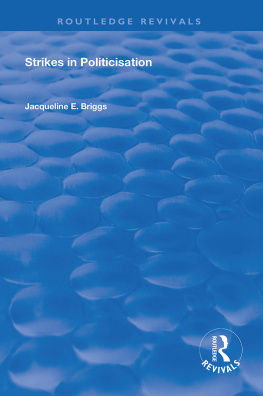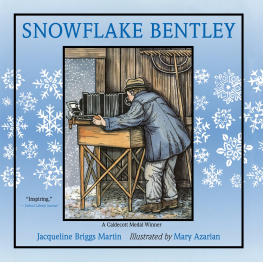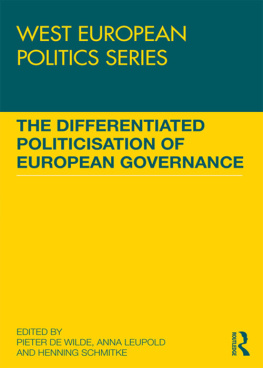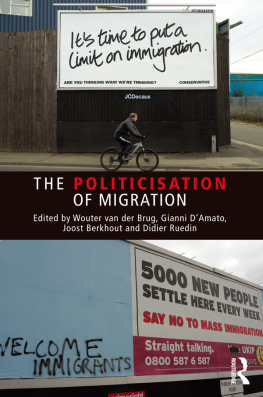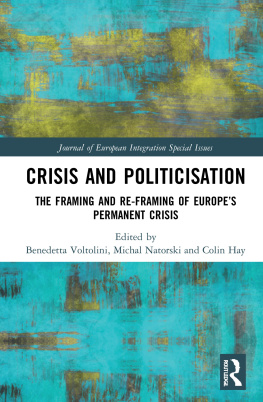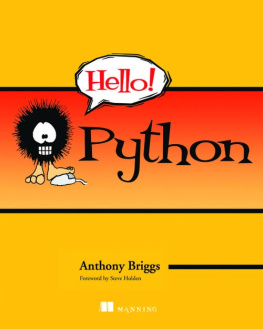First published 1998 by Ashgate Publishing
Reissued 2018 by Routledge
2 Park Square, Milton Park, Abingdon, Oxon, OX14 4RN
711 Third Avenue, New York, NY I 0017, USA
Routledge is an imprint of the Taylor & Francis Group, an informa business
Copyright Jacqueline E. Briggs 1998
All rights reserved. No part of this book may be reprinted or reproduced or utilised in any form or by any electronic, mechanical, or other means, now known or hereafter invented, including photocopying and recording, or in any information storage or retrieval system, without permission in writing from the publishers.
Notice:
Product or corporate names may be trademarks or registered trademarks, and are used only for identification and explanation without intent to infringe.
Publishers Note
The publisher has gone to great lengths to ensure the quality of this reprint but points out that some imperfections in the original copies may be apparent.
Disclaimer
The publisher has made every effort to trace copyright holders and welcomes correspondence from those they have been unable to contact.
A Library of Congress record exists under LC control number: 97030131
ISBN 13: 978-1-138-34497-6 (hbk)
ISBN 13: 978-1-138-34498-3 (pbk)
ISBN 13: 978-0-429-43817-2 (ebk)
I would like to express my sincere thanks and deepest gratitude to my former supervisor, Dr Alex Callinicos whose advice, comments and moral support have been very valuable throughout my years of research. Many thanks to my colleagues, Dr Hugh Bochel, Dr Terence Karran and Dr Youcef Bouandel for their help and advice on conducting research.
I am particularly indebted to the Politics Department at the University of York, to the School of Policy Studies at the University of Lincolnshire and Humberside and to my former place of employment, Wakefield District College - especially for the aid and assistance given to me by the librarians at these institutions. Thanks too to Grace Godfrey for help with typing the appendices.
Special thanks undoubtedly goes to the people of Hemsworth without whom this research would not have been possible.
Last, but not least, thanks to the family and friends, who have and who do share my life, for their support and sacrifice.
I joined the Labour Party during the Strike and Id never been a member before. Im still a member.
Before the Strike I could take em or leave em [the police]. Now if I saw one drowning I certainly wouldnt pull him out. I hate the establishment. I hate the police, all except one [the local community constable].
During the Strike, I became politicised during the Strike. I almost joined the Revolutionary Communist Party, not because I thought that they were any good but because I used to go picketing, Ive never been a miner but I used to go. Some of my mates went to Orgreave. I just had a deep hatred during the Strike and I think that the Revolutionary Communist Party articulated that hatred better than anybody else [Now a member of the local Green Party].
Not more involved, no. More aware, you become.
I joined the Labour Party during the Miners Strike.
(Comments made by people from Hemsworth)
Most, if not all of us, to whom the label employee could be applied have had to consider the possibility of engaging in strike activity at one time or another. The strike is perhaps the ultimate weapon that an employee is able to wield in an attempt to exert any influence or bargaining power vis-a-vis their employer. Strike activity is not a new phenomenon; indeed its history parallels the development of industrialised societies. Its usage, whilst representing a last resort, can offer the supreme sanction against the erosion of workers rights, conditions of employment and even the loss of employment itself.
The strike is, therefore, a powerful political tool which ought to be used sparingly in order to exert maximum effect. Even a one-day strike can lead to a significant loss of pay. Clearly, a strike of any longer duration is likely to exert a substantial financial burden upon the participants. Its impact upon the employer has to be considered but so too does its likely effects upon the employee. The costs, not simply financial, of strike action have to be weighed against the likelihood of achieving ones aims. It may be the case that a strike is entered into only after a significant amount of deliberation and discussion has taken place. Conversely, the strikers may feel that they were given no option but to strike for their livelihood. They may feel cornered and subject to a Hobsons Choice scenario of strike or lose out.
Whatever the catalyst for strike activity, one of the most interesting areas of political inquiry is the impact which the strike has upon its participants. Of no small significance is the effect, if any, which strike activity has upon the politicisation process. In particular, it is worthwhile considering whether participation in strikes has any effect upon the political ideas, attitudes and behaviour of those who take part in them. Examination of the politicisation process is complex. It is often hard to substantiate how and why people vote as they do; to explain why some people are fascinated by the political arena and why others, possibly the majority, find not the merest flicker of enthusiasm. Yet clearly there are such discrepancies in terms of interest and activism and the extent to which strikes impact upon this process is worthy of investigation.
The withdrawal of ones labour constitutes a significant political act - regardless of whether the participants recognise it as such. It may be the case, however, that the precise impact of strike activity upon the politicisation process is dependent upon other factors, such as, the duration of the strike, the amount of media coverage that a strike receives; how extreme the strike activity is in terms of the extent of the confrontation between employees and employers; whether the strikers have participated in picket line duties or made a sgnificant contribution to the strike effort; the extent to which violence has played a part in the dispute, whether the striker is fully supportive of the reasoning behind the action or whether they had to be coerced into downing their tools.
It is possibly true to say that one would need to exist in a political vacuum to participate in strike activity and not undergo some sort of politicisation process. The historical study of industrial relations certainly furnishes enough raw data upon which to investigate the basic hypothesis concerning the linkage between strikes and politicisation. It is worthwhile, therefore, pursuing this line further via a brief historical outline of strike action.
Strikes are not a culturally specific phenomenon. They exist and have existed in all industrialised societies. Workers in countries such as France, Germany, the United States of America, Canada, Spain, etc., have all, at some stage or another, participated in strike action. The ease with which they are prepared to resort to a withdrawal of labour may vary between nations; as may the voracity with which the workers are prepared to pursue their aims. On an international level, it is perhaps the image of the French farmers, with their propensity for direct action, that most easily springs to mind. Canadian and American car plant workers provide another classic example of industrial action.
In terms of the history of strikes, the U.K., being the first industrialised nation, has possibly the greatest experience of industrial conflict. An early example of a strike is the 1888 Matchgirls Strike where, at one stage, 1,400 women and girls at Bryant and Mays factory at Bow, East London went on strike because of low pay. The 1926 General Strike is certain to be etched in the memory of those who have researched the history of strikes and also in those octogenarians and their elders who may have actually experienced this event on a first-hand basis. The General Strike lasted from the 4th to the 12th May 1926. It included miners, transport workers, printers, engineers, builders and workers in heavy industries.

